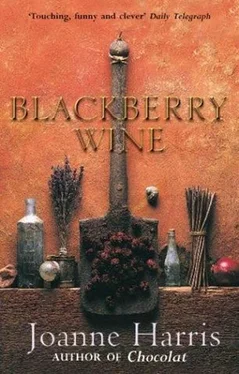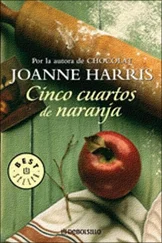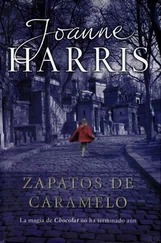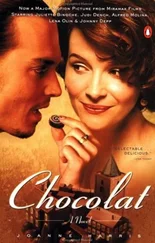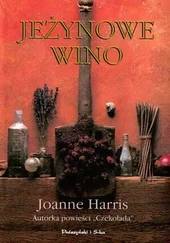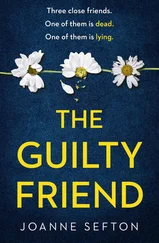Travel far enough , Joe used to say, and all rules are suspended .
Now Jay began to understand what he meant. Truth, loyalty, identity. The things which bind us to the places and faces of home no longer applied. He could be anyone. Going anywhere. At airports, railway stations, bus stations, anything is possible. No-one asks questions. People reach a state of near-invisibility. He was just another passenger here, one of thousands. No-one would recognize him. No-one had even heard of him.
He managed to sleep for a few hours on the train, and dreamed – a dream of astonishing vividness – of himself running along the canal bank at Nether Edge, trying vainly to catch up with a departing coal train. With exceptional clarity he could see the somehow prehistoric metal of the train’s undercarriage. He could smell coal dust and old grease from the trucks’ axles. And on the last truck he could see Joe, sitting on top of the coal in his orange miner’s overalls and a British Railways engineer’s cap, waving goodbye with a bottle of home-brewed wine in one hand and a map of the world in the other, calling in a voice made tinny by distance words Jay could not quite hear.
He awoke, needing a drink, twenty miles from Marseilles, with the countryside a long bright blur at the window. He went to the minibar for a vodka and tonic and drank it slowly, then lit a cigarette. It still felt like a forbidden pleasure – guilt laced with exhilaration, like playing truant from school.
He pulled the brochure out of his pocket once more. Decidedly crumpled now, the cheap paper beginning to tear at the folds. For a moment he almost expected to feel differently, to find that the sense of must-have was gone. But it was still there. In the duffel bag at his side the Specials lolled and gurgled with the train’s movement, and inside the sediment of past summers stirred like crimson slurry.
He felt as if the train would never reach Marseilles.
Pog Hill, Summer 1976
HE WAS WAITING ON THE ALLOTMENT. THE RADIO WAS PLAYING, tied with a piece of string to the branch of a tree, and Jay could hear him singing along – Thin Lizzy and ‘The Boys Are Back In Town’ – in his extravagant music-hall voice. He had his back turned, leaning over a patch of loganberries with secateurs in one hand, and he greeted Jay without turning round, casually, as if he had never been away. Jay’s first thought was that he’d aged; the hair beneath the greasy cap was thinner, and he could see the sharp, vulnerable ridge of his spine through his old T-shirt, but when the old man turned round he could see it was the same Joe, jay-blue eyes above a smile more suited to a fourteen-year-old than a man of sixty-five. He was wearing one of his red flannel sachets around his neck. Looking more carefully around the allotment Jay saw that a similar charm adorned every tree, every bush, even the corners of the greenhouse and the home-made cold frame. Small seedlings protected under jars and bisected lemonade bottles each bore a twist of red thread or a sign crayoned in the same colour. It might have been another of Joe’s elaborate jokes, like the earwig traps or the sherbert plant or sending him to the garden centre for a long weight, but this time there was a dogged, sombre look to the old man’s amusement, like that of a man under siege. Jay asked him about the charms, expecting the usual joke or wink, but Joe’s expression remained serious.
‘Protection, lad,’ he said quietly. ‘Protection.’
It took the boy a long time to realize quite how serious he was.
Summer wound on like a dusty road. Jay called by Pog Hill Lane almost every day, and when he felt in need of solitude he went over to Nether Edge and the canal. Nothing much had changed. New glories on the dump: abandoned fridges, ragbags, a clock with a cracked casing, a cardboard box of tattered paperback books. The railway, too, delivered riches: papers, magazines, broken records, crockery, cans, returnable glass. Every morning he combed the rails, picking up what looked interesting or valuable, and he shared his finds with Joe back at the house. With Joe, nothing was wasted. Old newspapers went into the compost. Pieces of carpet kept the weeds down in the vegetable patch. Plastic bags covered the branches of his fruit trees and protected them from the birds. He demonstrated how to make cloches for young seedlings from the round end of a plastic lemonade bottle, and potato-planters from discarded car tyres. They spent a whole afternoon dragging an abandoned box freezer up the railway banking to make a cold frame. Scrap metal and old clothes were piled into cardboard boxes and sold to the rag-and-bone man. Empty paint tins and plastic buckets were converted into plant pots. In return, he taught Jay more about the garden. Slowly the boy learned to tell lavender from rosemary from hyssop from sage. He learned to taste soil – a pinch between the finger and thumb slipped under the tongue, like a man testing fine tobacco – to determine its acidity. He learned how to calm a headache with crushed lavender, or a stomach ache with peppermint. He learned to make skullcap tea and camomile to aid sleep. He learned to plant marigolds in the potato patch to discourage parasites, and to pick nettles from the top to make ale, and to fork the sign against the evil eye if ever a magpie flew past. There were times, of course, when the old man couldn’t resist a little joke. Like giving him daffodil bulbs to fry instead of onions, or planting ripe strawberries in the border to see if they’d grow. But most of the time he was serious, or so Jay thought, finding real pleasure in his new role as a teacher. Perhaps he knew it was coming to an end, even then, though Jay never suspected it, but it was that year that he was happiest, sitting in the allotment with the radio playing, or sorting through boxes of junk, or holding the vegetable-cutter for Joe as they selected fruit for the next batch of wine. They discussed the merits of ‘Good Vibrations’ (Jay’s choice) versus ‘Brand New Combine Harvester’ (Joe’s). He felt safe, protected , as if all this were a little pocket of eternity which could never be lost, never fail. But something was changing. Perhaps it was in Joe: a new restlessness, the wary look he had, the diminishing number of visitors – sometimes only one or two in a whole week – or the new, eerie quiet in Pog Hill Lane. No more hammering, no singing in the yards, less washing hanging out to dry on clothes lines, rabbit hutches and pigeon lofts abandoned and derelict.
Often Joe would walk to the outer edge of his allotment and look over the railway in silence. There were fewer trains, too, a couple of passenger trains a day on the fast line, the rest shunters and coal trucks ambling slowly north to the yard. The rails, so shiny and bright last year, were beginning to show rust.
‘Looks like they’re plannin to close the line,’ Joe remarked on one of these occasions. ‘Goin to knock down Kirby Central next month.’ Kirby Central was the main signal box down by the station. ‘Pog Hill, anall, if I’m not mistaken.’
‘But that’s your greenhouse,’ protested Jay. Since he had known Joe, the old man had used the derelict signal box fifty yards from his back garden as an unofficial greenhouse, and it was filled with delicate plants, tomatoes, two peach trees, a couple of vines branching out into the eaves, escaping onto the white roof in a spill of broad, bright leaves.
Joe shrugged.
‘They usually knock em flat first off,’ he remarked. ‘I’ve bin lucky so far.’ His eyes moved to the red charm bags nailed to the back wall and he reached out to pinch one between finger and thumb.
‘Thing is, we’ve bin careful,’ he continued. ‘Not drawn attention to usselves. But if they shut that line, there’ll be men taking up the track all down Pog Hill and towards Nether Edge. They might be here for months. And this here, it’s private property. Belongs to British Railways. You an me, lad, we’re trespassers.’
Читать дальше
